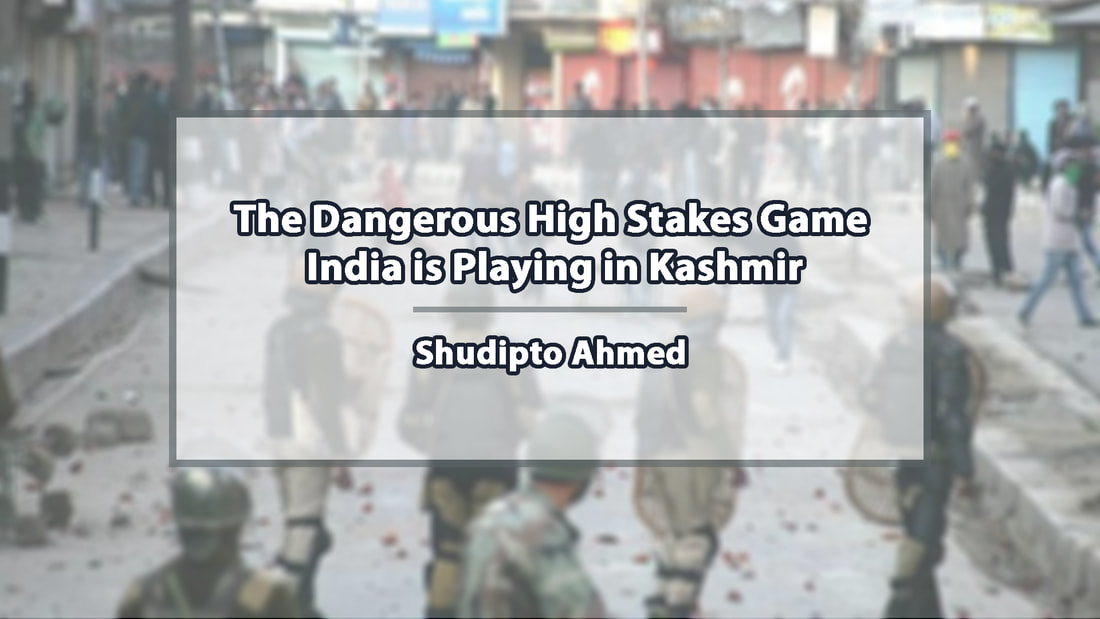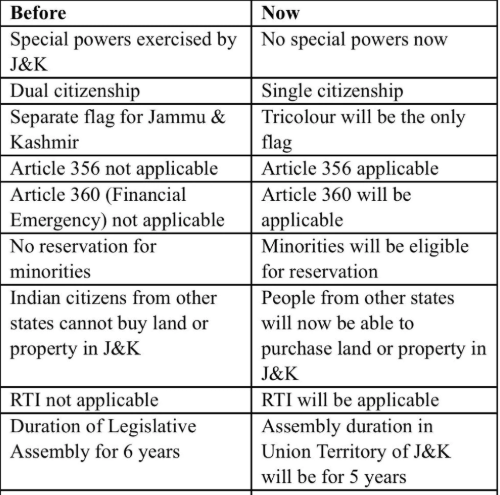ECONOMICS STUDY CENTER, UNIVERSITY OF DHAKA
|
Shudipto Ahmed At 11:57 PM, 14th August, 1947, Pakistan came to be a sovereign nation. Five minutes later, at 12:02 AM, 15th August, India herself became independent. The separation was gruesome. The British spent nearly 200 years ruling the lands, but when it came time to hand over power to their former subjects, they wanted to close shop as early as possible and leave. Little thought was spared to understand the infinitely complex multi-cultural society that was the Indian sub-continent. They, instead, found a cookie cutter solution to the problem; they divided India on the basis of religion: majority Muslim communities were to be on side of the border, and majority Hindu communities on the other (notwithstanding the fact that many of these very same communities had a majority of neither, but rather a multiplicity of people with diverse religious affiliations). The two Muslim-majority regions that flanked what is today’s modern India became Pakistan. But there was the matter of the nearly 600 princely states that Britain said could choose among India, Pakistan, and independence. The overwhelming majority of states picked one of the two countries. Some of the rulers of the states that chose to remain independent were ultimately forced into joining India or Pakistan. And then there was Kashmir. Kashmir was a Muslim plurality state with a sizeable Hindu and Buddhist population as well as a Hindu maharajah as its ruler. Sandwiched between mostly Hindu India and mostly Muslim Pakistan, he-like many of his principality’s citizens- hoped for independence. It was not to be. Pakistan-based tribesmen invaded, and the maharajah was forced to India’s help, which Nehru offered on the condition that Kashmir join India. The maharajah agreed. The subsequent bloody war that followed between the two newly born nations resulted in each controlling parts of the territory on opposite sides of the Line of Control running through Kashmir as drawn by the UN in 1948. Enter Article 370 In 1948, the UN Security Council called for a plebiscite so that Kashmiris could decide their own fate. Nehru, whose family hailed from Kashmir, agreed in the hopes that Kashmiris would overwhelmingly pick India, and through Article 370, he accorded Kashmir special status, allowing it to have a separate constitution, a state flag and autonomy over the internal administration of the state. Foreign affairs, defense and communications remained reserved for the central government. This also ensured, among other things, that Kashmir could make its own rules relating to permanent residency, ownership of property and fundamental rights. It could also bar Indians from outside the state from purchasing property or settling there. But there was a problem with this arrangement For one, even 72 years after independence, the plebiscite has never been held. The other reason why this arrangement has not elicited good faith in India is thanks to the shameless vote rigging that happened during the 1987 State elections that shook Kashmiris’ faith in the system. To them, it was a clear sign of India’s imperialistic ambitions. This has resulted in an insurgency- aided and abetted by Pakistan, India has alleged- that has plagued the state since 1989, which according to official figures released by the state, has left more than 47,000 people dead (including 7,000 police personnel) as of July 2009. This has given the central government the impetus to use the military to crackdown hard on insurgents who have only struck back harder. In May this year, 46 were killed when a car packed with explosives was driven into a convoy of 78 buses carrying Indian paramilitary police. This is in addition to the countless massacres of predominantly Hindu civilians in Kashmir. The government, for its part, has not done much to earn people’s trust, throwing thousands into jail for protesting and using pellet guns that have caused the largest mass blinding in human history. Enter Modi Against this backdrop, Prime Minister Narendra Modi and the BJP have maintained that Kashmir is a mess because of Nehru’s decision to accord it special status and have long promised to abolish it. And in this election cycle, after winning an increased parliamentary majority, the BJP claimed a mandate to enact its agenda. Beginning in August, tens of thousands of additional Indian troops were deployed, a major Hindu pilgrimage was cancelled, schools and colleges were shut, tourists were ordered to leave, and telephone and internet services were suspended, and regional political leaders- even those seen as overtly cozy with the central government- were placed under house arrest. The government’s argued that this was the only rational course of action to “integrate” the region, spur investment that has long been stifled in the state, and allow the state to be on equal legal footing with all the other Indian states. Common sense, however, would have us ask why the Modi government would want to split up the state into two separate union states, with less autonomy than any other Indian state and which, in effect, would officially make Kashmiris second class citizens. So what’s to become of all this? In the short term, this move will certainly destabilize a region that experienced a bloody insurgency throughout most of the last three decades. Terrorist groups operating out of Kashmir have catalyzed further conflict at moments of crisis in the past; groups like Jaish-e Muhammad and Lashkar-e Taiba: The former was responsible for the car bomb that killed 46 paramilitary police this year; the latter was responsible for 2008 multiday assault on Mumbai that left 160 dead. These terrorist groups won’t even have to look far for new recruits. In a land where the current generation has grown up under the gun; where there is no significant social sanction against terrorist activities against the state; where the state is seen as the oppressor and insurgents are glorified as heroes- recruits will no doubt be easy to find, as they have been over the years. It’s also possible that the implications will extend well beyond the borders of Kashmir all the way to Afghanistan, as the US attempts to negotiate a peace deal with a Taliban which would have been impossible without help from Pakistan. Relenting to the demands of the US, they released top Taliban leaders from jail and allowed them to travel internationally to the peace talks in Doha. The US, however, has so far refused to take a mediatory role in the Kashmir crisis. With Russia and China firmly taking India’s side, Pakistan may be forced to play its hand, thereby dashing hopes of a peace deal between the US and the Taliban. The long term, effect however, is the slow mutation of democracy itself in India. The way that Modi may achieve this is through the removal of the rule, dating back to colonial times, barring non-Kashmiris from settling in Kashmir. Without this provision, the demographic balance of the state could shift—and with it, the idea that a vibrant democracy must take special efforts to protect the status of minority communities. A swing of a few million residents would shift Kashmir from majority-Muslim to majority-Hindu. In a nation of over 1 billion, that’s not such a stretch. The BJP advocates for in-migration of Hindus to the state. Officially, this applies only to those who fled Kashmir in the violence of the 1990s, but there is now no legal barrier to a full-fledged government-sponsored in-migration program. Such a move would solidify the BJP’s Hindu-nationalist agenda of redefining India not as a multi-religious secular state, but as a Hindu nation-state in which 200 million Muslims are tolerated only so long as they remain on good behavior. Now, to many this may sound like run of the mill xenophobic fear mongering, however, one must remember that Modi’s regime has effectively tolerated – if not encouraged – a saffron-clad army of Hindu activists who monitor and violently discipline those suspected of eating beef, disobeying caste rules or betraying the “Hindu nation”. His record on minority rights as the Chief Minister of Gujarat during the 2002 Gujarat riots doesn’t inspire much confidence either. Neither does the recent uptick in Google searches for “Kashmiri girls” from Indian men or the videos of young Hindus claiming that now they can get themselves “gori” Kashmiri girls. This follows statements made by the BJP’s Vikram Singh Saini who said, “Party workers are very excited there(Kashmir), get the bachelors married there, I don't have any problem”, adding, “I'm saying this to all Muslim-Hindu boys ,go marry with “gori” girls now...". In places of conflict, it is most often the women who are dealt the worst hand as a cursory glance at our own history of exploitation of tribal women in the CHT will reveal. The stakes couldn’t be higher Speaking from a purely technical sense, there is little chance that India will become a nondemocratic state. It will keep conducting national-level elections that are basically fair, and will keep transferring power peacefully between parties that generally reflect the will of a majority of its population. The real question—for India and for the world—is whether this is enough. It must be pointed that the voices that matter most in this entire ordeal, those of the people of Kashmir, have been noticeably absent. Will it even matter if they speak or when they speak? They’ve technically already been voted down in an election they had no say in. Democracy is not a set of principles that’s set in stone. It is a living idea that changes over time. In ancient Athens, it excluded both women and ethnic minorities; in many a not-so-ancient democracies, much the same. There has always been a tension at the very core of democracy between majoritarianism and institutional protection for minorities. While honoring the will of the people is important, as Viscount Tocqueville recounted, we must not give way to a decision "which bases its claim to rule upon numbers, not upon rightness or excellence". How well we protect our minorities is a litmus test for the overall health of a democracy. Because if we can’t protect those who are most vulnerable from all manifestations ill intent, then how can any nation claim to be a democracy? References:- 1.https://theimaginativeconservative.org/2015/03/equality-tyranny-and-despotism-in-democracy-remembering-alexis-de-tocqueville.html 2. https://www.bbc.com/news/world-asia-india-49234708 3. https://www.theatlantic.com/international/archive/2019/08/india-moves-revoke-special-status-kashmir/595510/?utm_campaign=the-atlantic&utm_content=5d4bb37affeb9a00013bbccf_ta&utm_medium=social&utm_source=facebook&fbclid=IwAR3LlCFFb31ah6NPgiscfmR-zpfQFw9BuN8xYLIL6OZlDPqOX-TnPsrgHbU 4. https://www.bbc.com/news/world-asia-india-47302467 5. https://www.theatlantic.com/international/archive/2019/08/indias-kashmir-democracy/595711/?utm_term=2019-08-08T06%3A05%3A04&utm_content=edit-promo&utm_medium=social&utm_campaign=the-atlantic&utm_source=facebook&fbclid=IwAR0wYMx3yXKyXhvLZaw6h-ihyTrsk2sn8vg7c7I0z-sEjHWdjrMTV6bNw5o 6. https://in.reuters.com/article/idINIndia-36624520081121 7.https://www.theguardian.com/commentisfree/2015/nov/12/india-hindu-taliban-narendra-modi?CMP=share_btn_fb&fbclid=IwAR1E-Yix0J-q4cU9kLy81LP5hJCBtUHWXwgUIly_pJGYBCcq2gdAraUYTFE 8. https://www.bbc.com/news/world-asia-india-49261322 9.https://www.hindustantimes.com/india-news/marry-fair-kashmiri-girl-now-bjp-mla-after-on-article-370-repeal/story-PN1M8vLCWdizTpGFuykWyI.html 10.https://psmag.com/news/indias-clampdown-on-kashmir-threatens-afghanistan-peace-negotiations
0 Comments
Leave a Reply. |
Send your articles to: |




